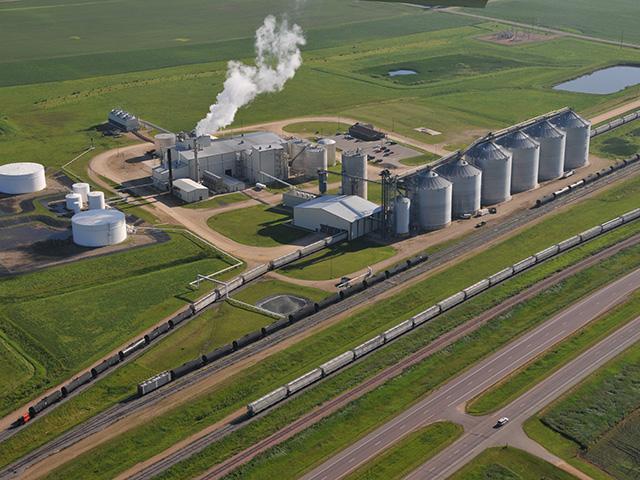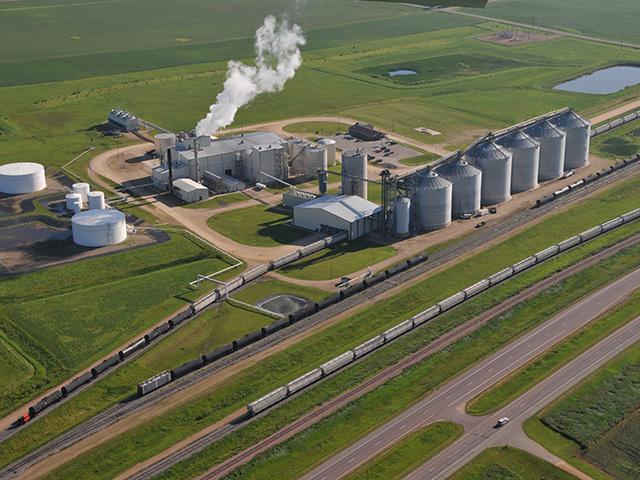Ethanol Blog
Study: RFS Greenhouse Gas Emissions Savings Exceeds EPA Projections
ORLANDO, Fla. (DTN) -- The Renewable Fuel Standard has cut greenhouse gas emissions in transportation fuels by about 1.2 billion metric tons since 2008, according to a new study released by the Renewable Fuels Association at the national ethanol conference in Orlando, Florida, on Thursday.
The new study conducted by renowned carbon accounting company Life Cycle Associates, said corn ethanol accounts for the largest portion of those GHG savings, https://d35t1syewk4d42.cloudfront.net/….
LCA said there are several reasons why corn ethanol's GHG performance may come as a surprise to EPA.
"Further savings resulted from higher uptake of corn fiber ethanol, increases in low CI renewable natural gas, and growth in non-ester renewable diesel," the study said.
In 2022, LCA said annual emissions savings has exceeded pre-COVID levels as fuel demand recovered and technology investments grew.
"These emissions savings occur even though cellulosic biofuels have not met the RFS2 production targets," LCA said.
P[L1] D[0x0] M[300x250] OOP[F] ADUNIT[] T[]
In addition to underestimating biofuels' ability to cut emissions, LCA found the EPA also fell short on calculating emissions from oil and gas production.
"Studies by Life Cycle Associates and the Carnegie Institute have shown that the GHG emissions from U.S. petroleum are higher than the EPA calculated in 2005," according to the new study.
"This study calculates the annual U.S. petroleum GHG intensity based on the changing trends in feedstock availability over time and determines the GHG savings calculated from the aggregate mix of renewable fuels."
Geoff Cooper, president and CEO of the Renewable Fuels Association, said the study reinforces what the industry has known for some time about its low-carbon performance.
"This report demonstrates that the RFS has been remarkably successful in driving down carbon emissions from the transportation sector," he said.
"In fact, the RFS is the only federal program on the books today that requires the use of lower-carbon fuels in our vehicles. And we're just getting started. Our producer members have unanimously committed to achieve net-zero carbon emissions by 2050 or sooner, and this report shows we are well on our way toward that goal thanks to new technology and efficiency improvements both on the farm and at the biorefinery."
The new report is an update to previously published studies in 2021 and 2019. It was conducted for the Renewable Fuels Association by Stefan Unnasch, Debasish Parida and Brian Healy of Life Cycle Associates.
Cooper said the study is just additional evidence of what ethanol has meant to GHG reductions.
According to the Department of Energy's Argonne National Laboratory, typical corn ethanol provides a 44% to 52% GHG savings compared to gasoline.
Researchers from Harvard, MIT, and Tufts concluded that today's corn ethanol offers an average GHG reduction of 46% versus gasoline.
An analysis by USDA found that some biorefineries could soon produce ethanol that offers 70% GHG reduction compared to gasoline.
The California Air Resources Board shows that ethanol used in the state is reducing GHG emissions by nearly 40% compared to gasoline, on average, even with a GHG penalty for land-use change -- with some U.S.-produced ethanol providing 65% to 80% GHG reductions.
Todd Neeley can be reached at todd.neeley@dtn.com
Follow him on Twitter @DTNeeley
(c) Copyright 2023 DTN, LLC. All rights reserved.






Comments
To comment, please Log In or Join our Community .